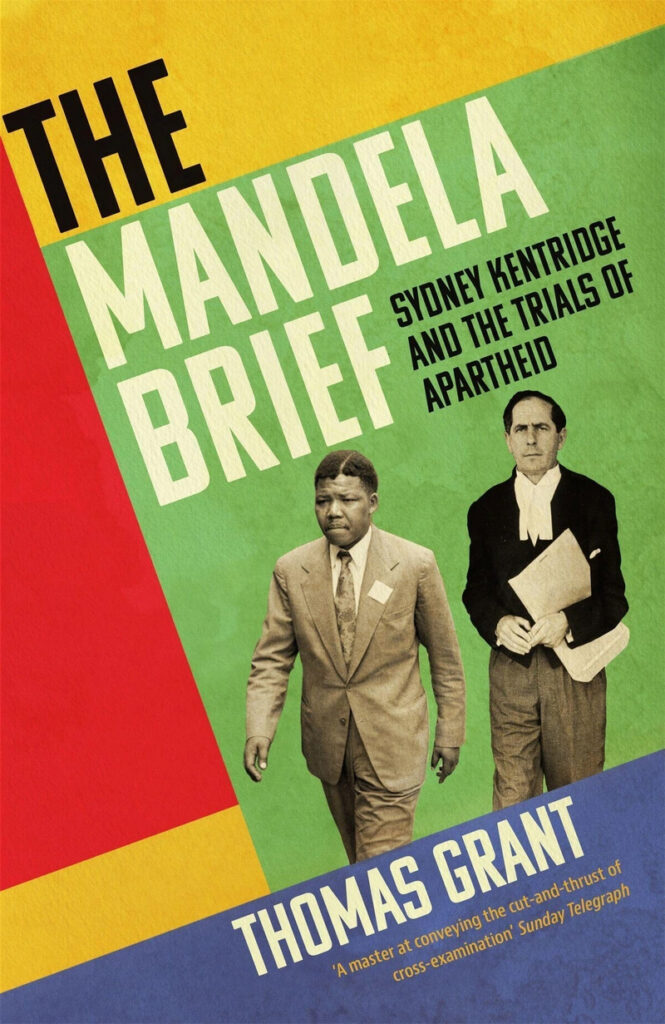By Anton Katz SC
Sydney Kentridge KC* SC turns 100 years old in November.
Kentridge is regarded as the best advocate (barrister) in the English-speaking world in the past 50 years. He was born in Johannesburg to Jewish parents whose ancestors had come from Eastern Europe.
After an interesting and daunting service in the airforce during World War II and then legal studies at Oxford, he commenced practice as an advocate at the Johannesburg Bar. His practice started with smaller briefs which demonstrated his aptitude and dedication to each case he took on.
He practised at the Johannesburg Bar for some twenty years before gradually and ultimately moving to practise full time in all manner of cases at the London Bar. In London, Kentridge argued many of the most significant cases from the House of Lords to the European Court of Justice and the European Court of Human Rights.
He continued practising as a barrister into his nineties. On his ninetieth birthday he argued as one of fifteen barristers a grueling three-day tax case in the Supreme Court in London’s Parliament Square. Kentridge’s powerful argument succeeded.
He is the oldest person ever to have argued in the United Kingdom’s highest court. However what will always dominate his legacy are his cases challenging the apartheid laws, policy and conduct by the apartheid government. Thomas Grant KC recently produced a 289-page book deliciously describing in some detail just a few of those South African cases. The book is entitled The Mandela Brief — Sydney Kentridge and the Trials of Apartheid.
Apart from cursory chapters concerning Kentridge’s heritage and history and a brief, somewhat anecdotally amusing epilogue concerning his London years (in a major case involving music royalties, Sydney in all seriousness referred to “singer Mike Jackson”), the book examines the details of the famous South African cases: the Treason Trial, the Sharpeville Inquiry, the trials of Bram Fischer, Winnie Mandela, Dean ffrench-Beytagh, and the Steve Biko Inquest in 1977. The hideous inhumane apartheid laws, and the nasty murderous conduct by the security police against those who they deemed ‘terrorists’ were highlighted again and again by Kentridge before the apartheid courts.
On occasion an apartheid judge would rule in favour of one of Kentridge’s clients, but generally his clients received scant justice from apartheid judges blind to justice and fairness. Kentridge fought on. He analysed the minutiae of his cases, working long hours night after long night, producing arguments with unanswerable logic. His cross-examination of security policemen exposed the lies they were telling at every turn, yet some (but not all) judges believed these lies and stark improbabilities.
There can be no doubt that Kentridge’s brilliance and hard work made a dramatic difference to many of his clients and indeed to the
wider community.
But the vexed question is always raised… should men and women of solid morality take part as lawyers in an immoral legal system? Should lawyers take part in the legal systems of, for example, Nazi Germany and apartheid South Africa? To take part in these immoral and illegitimate legal systems, some argue, is to legitimise the system itself.
The apartheid government prided itself on the importance of the law. The National Party told the world that its system was law-based, and that those opposing apartheid were operating outside the law and had to be dealt with as such. In many ways lawyers like Kentridge who robustly represented Nelson Mandela and his banned ANC colleagues were both hated and welcomed by the apartheid government. They were hated because they were competent and showed up the stupidity and evil of the apartheid laws. On the other hand, so the Nationalists believed, Kentridge’s work showed the world that there was a decent legal system in place and those who obeyed the law would be protected by the courts.
Ultimately, Sir Sydney Kentridge KC SC can certainly be said to have done far more good by being part of and challenging the system. His work, in my view, gave legitimacy to Nelson Mandela and those whose dignity was trampled daily. Without the courage and diligence of Kentridge and lawyers like him, apartheid may have lasted a lot longer than it did.

The Mandela Brief: Sydney Kentridge and the Trials of Apartheid by Thomas Grant (21 Jul 2022) is available at the Book Lounge and for loan from the Jacob Gitlin Library.
* All QC’s (Queens Counsel) became KCs (Kings Counsel) after Queen Elizabeth’s death and King Charles III ascension to the English throne.
Anton Katz is a practising Senior Counsel, former United Nations special rapporteur on mercenaries and human rights, former Acting High Court Judge, and an admitted attorney in New York. He was born and raised in Sea Point.
• Published in the October 2022 Digital Edition – Click here to read it.
• To advertise in the Cape Jewish Chronicle and on this website – kindly contact Lynette Roodt on 021 464 6736 or email advertising@ctjc.co.za. For more information and advertising rate card click here.
• Sign up for our newsletter and never miss another issue.
• Please support the Cape Jewish Chronicle with a voluntary Subscription for 2022. For payment info click here.
• Visit our Portal to the Jewish Community to see a list of all the Jewish organisations in Cape Town with links to their websites.
Follow the Cape Jewish Chronicle: Facebook | Instagram | Twitter | LinkedIn










